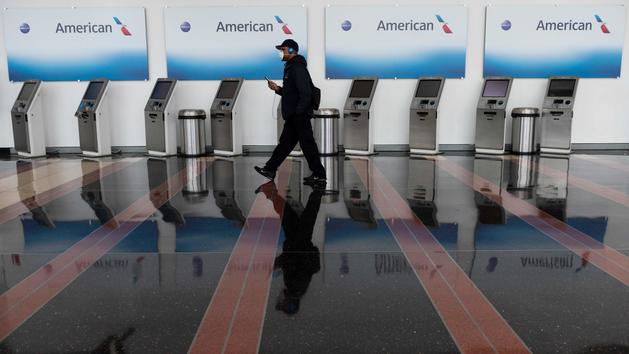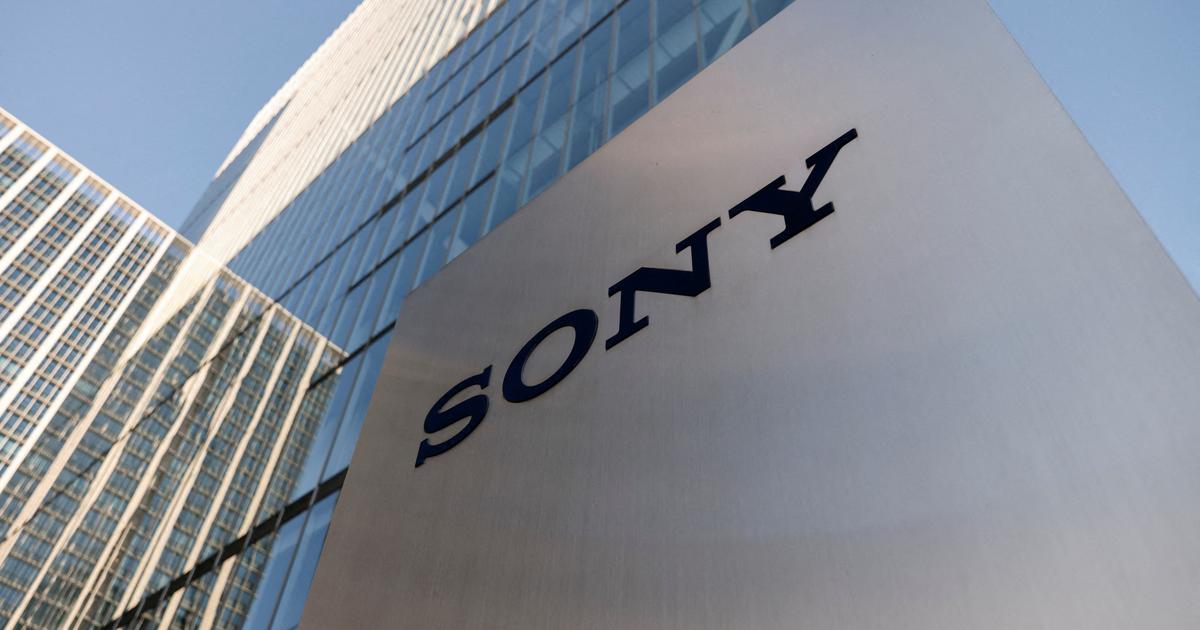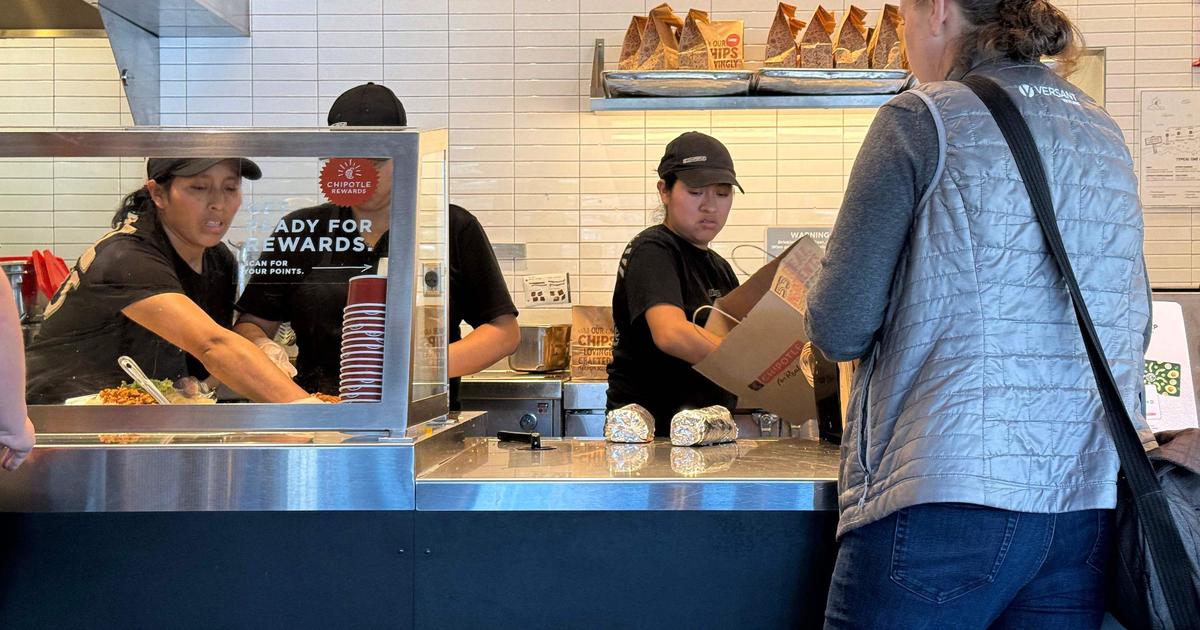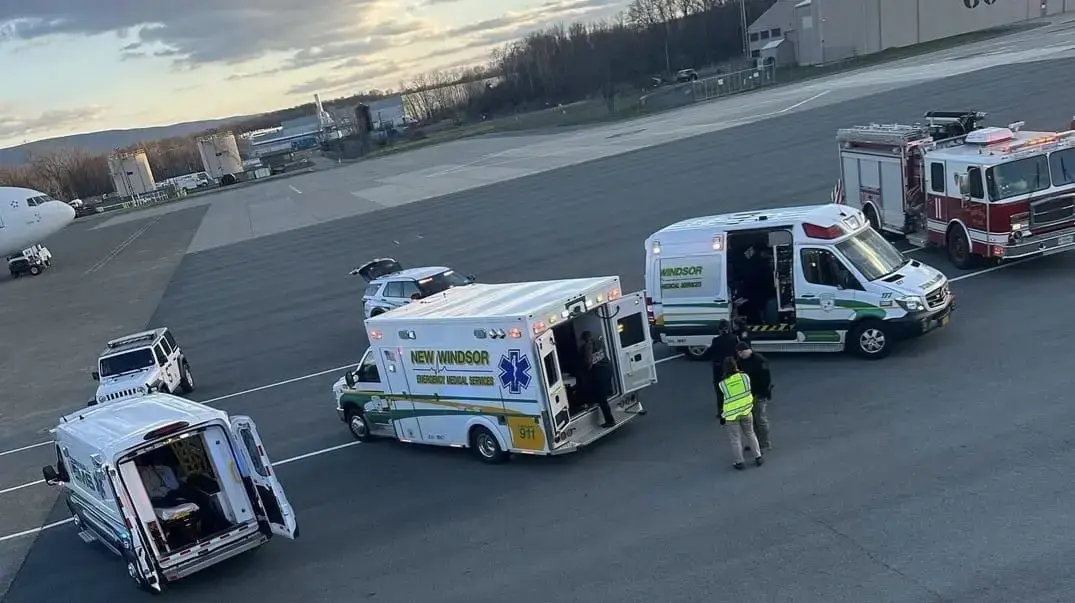In the absence of a last-minute agreement in the US Congress, airlines weakened by the coronavirus pandemic are preparing to lay off tens of thousands of people from Thursday in the United States.
American Airlines was the first to confirm that it would begin Thursday
"the difficult process"
of technically laying off 19,000 of its employees.
Its CEO, Doug Parker, however left a door open:
"We will cancel"
these layoffs
"and recall the members of the affected team"
if Democrats and Republicans manage in the days to come to a compromise, he affirmed. in a message to employees.
United Airlines has also been warning for several weeks that it could fire around 13,000 people.
Like other large companies in the industry, American and United had pledged in the spring not to fire anyone until September 30, in exchange for subsidies totaling $ 25 billion.
But that aid expires on Wednesday.
However, discussions between Democrats and Republicans on a new plan to support the economy, if they resumed Wednesday in Washington, have not yet concluded.
Read also: Air traffic collapses, Airbus plunges into the red
The loans granted Tuesday by the Ministry of Finance to seven companies for a total amount of 25 billion dollars did not change the situation: this money is intended to help them cover current expenses but is not dedicated to salaries.
However, activity is still significantly affected by the coronavirus pandemic, and many passengers are reluctant to fly in a confined space, international flights are still subject to strict restrictions and business travel is at half mast.
The number of customers passing through security at US airports is still down by around 60% to 70% from the same period in 2019, according to government figures.
100,000 jobs threatened
The companies have already slashed a lot in their workforce through voluntary departure plans, early retirement and unpaid leave.
At Delta, more than 40,000 employees have already opted for one of these programs.
Southwest has separated, either temporarily or permanently, from 27% of its employees.
But this is not enough for some companies.
The unions, who like the bosses of the sector have been pleading in all directions in Washington for several weeks for an extension of the subsidy program, for several days brandishing the threat of 100,000 jobs lost in total.
This figure should however be lower, tempers Peter McNally of the company Third Bridge.
On the one hand, the airlines have raised a lot of money in recent months to deal with the crisis and their financial situation is not as desperate as it might appear in the spring.
Some companies have seized the opportunity to dip into the $ 25 billion envelope made available to them by the government for loans.
Others like Delta or Southwest preferred not to have to meet the requirements of the State (acquisition of minority stakes, temporary ban on paying dividends, limit on executive compensation) and borrowed heavily from the financial markets.
Read also: How Airbus and Boeing are trying to cushion the shock of the Covid-19 crisis
Airlines must also be ready to expand their flight programs once air traffic takes off again.
Delta, for example, agreed not to lay off any pilot before November 1, the time to see where the negotiations were leading in the American capital.
From this perspective, smaller companies like JetBlue or Alaska Airlines
"may be less exposed because they are less dependent on international flights and business travel"
than United, American or Delta, notes Mr. McNally.
The aviation sector is far from being the only one to be affected by the pandemic. Disney, for example, announced Tuesday the loss of 28,000 jobs in the United States. Some government aid that has allowed companies or individuals to keep their heads above water will soon expire, says Nancy Vanden Houten of Oxford Economics. The funds dedicated to unemployment benefits paid by the federal government in addition to those of the local authorities, already reduced from 600 dollars a week to 300 dollars in early August,
"should dry up during the month of October"
, warns the economist. State and local government finances are also hit hard by the drop in economic activity. The think tank Economic Policy Institute estimates that, without government help, 5.3 million people could be made redundant by the end of 2021 in the public sector.






/cloudfront-eu-central-1.images.arcpublishing.com/prisa/MXTXEH6DHZAIPOPMLXDFGPSG4Y.jpg)


